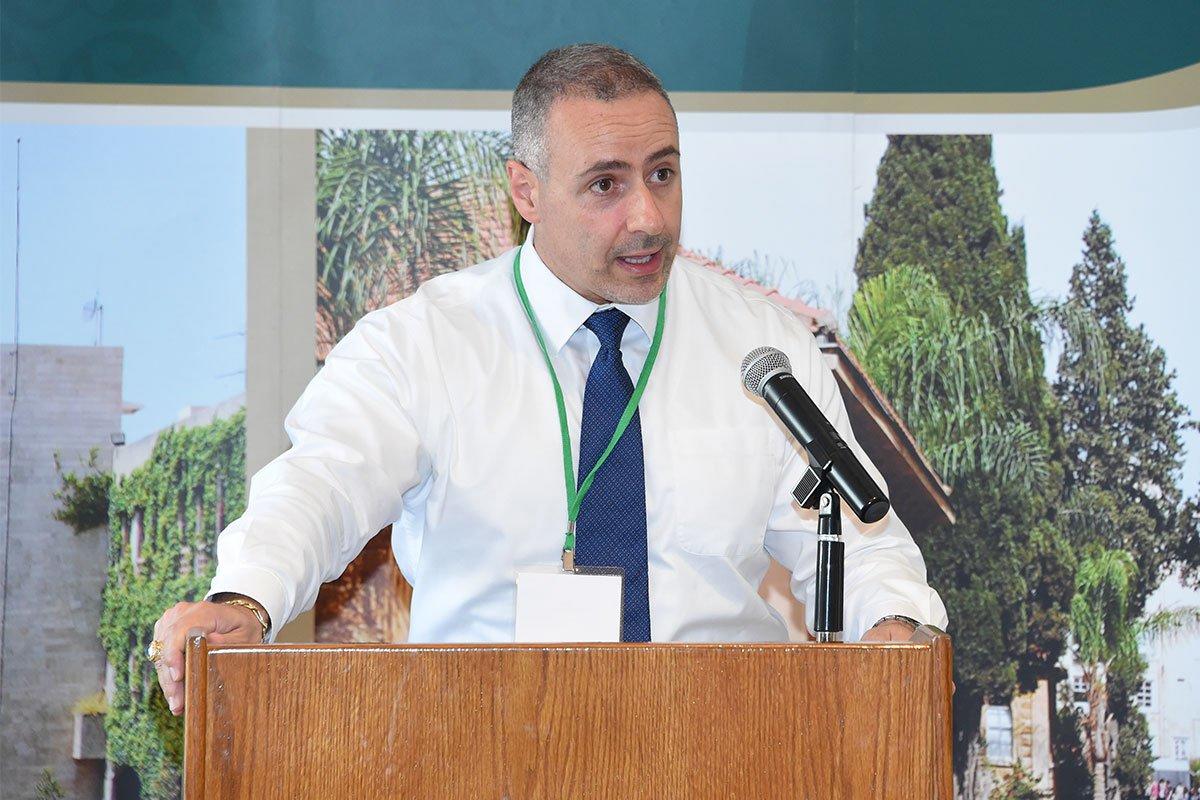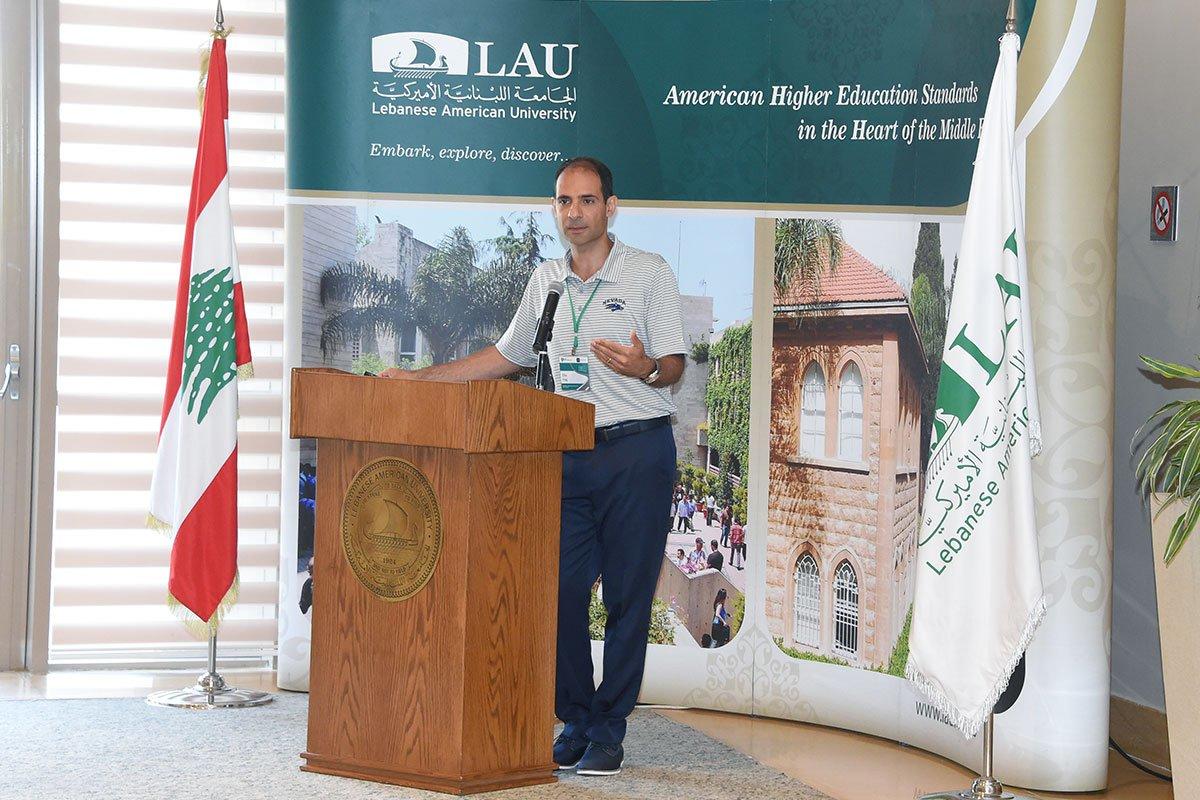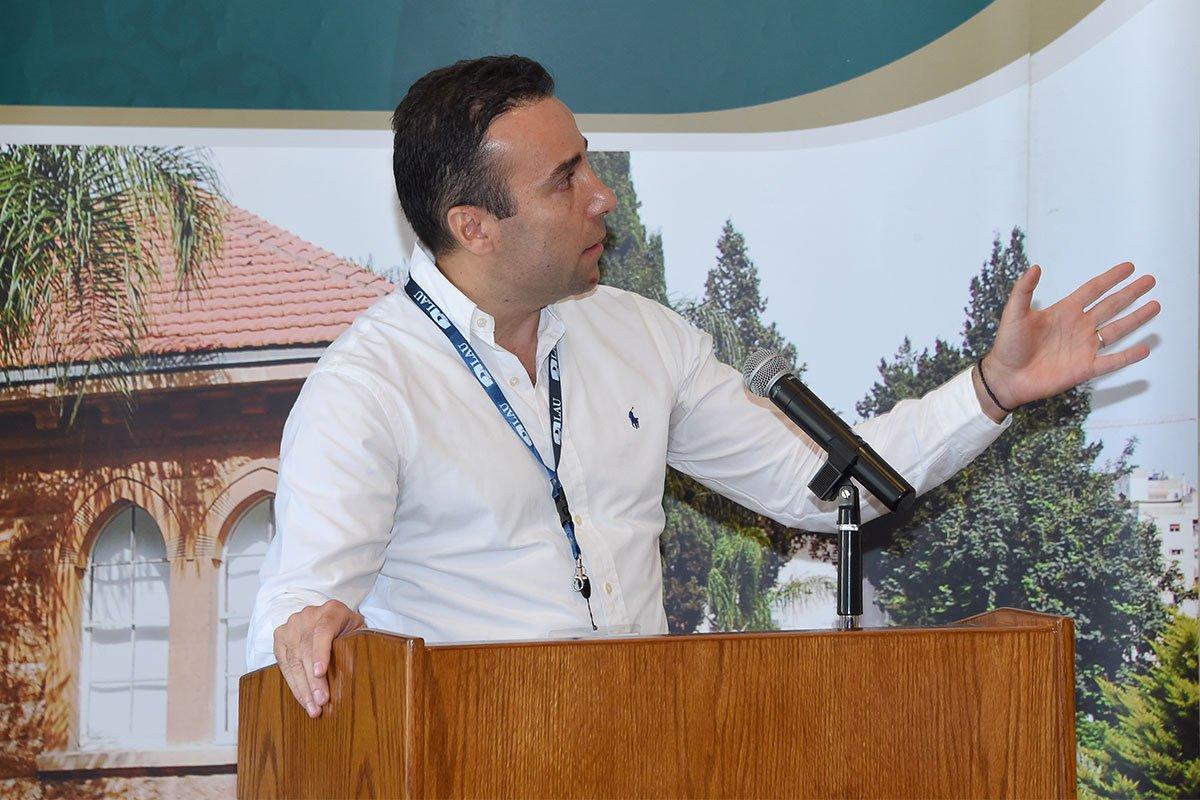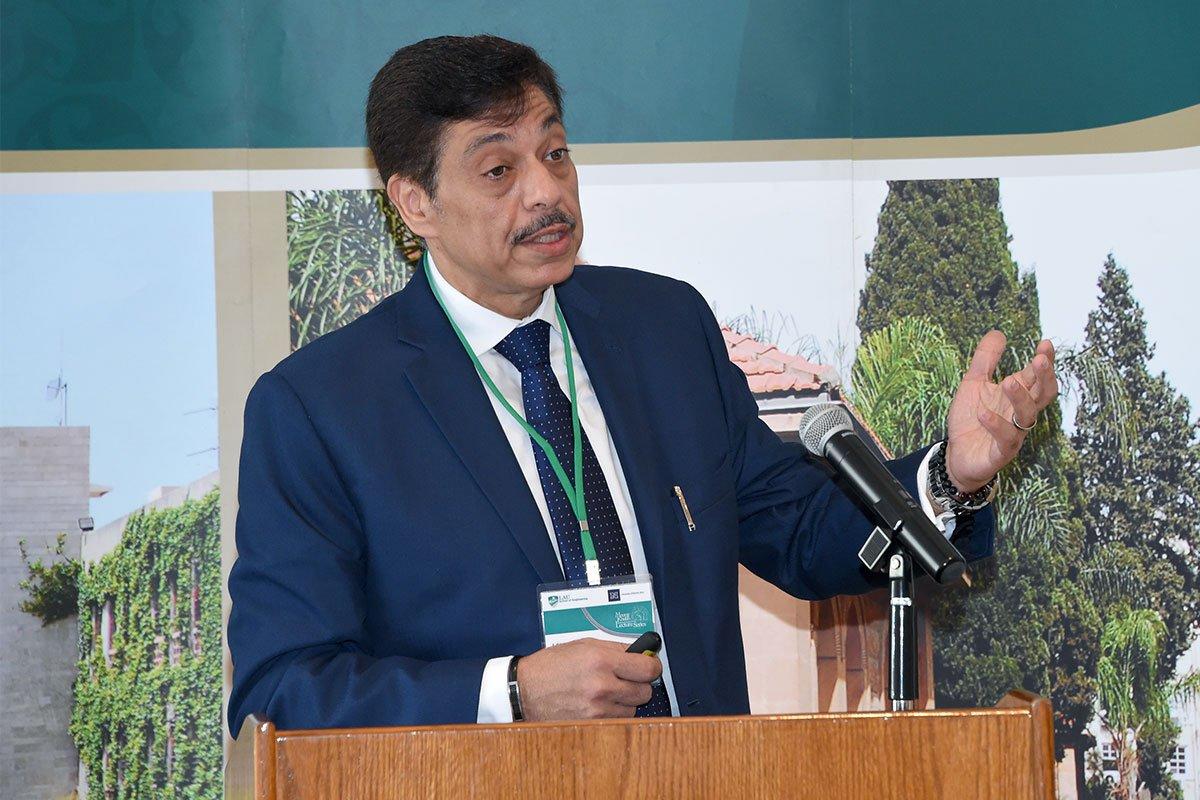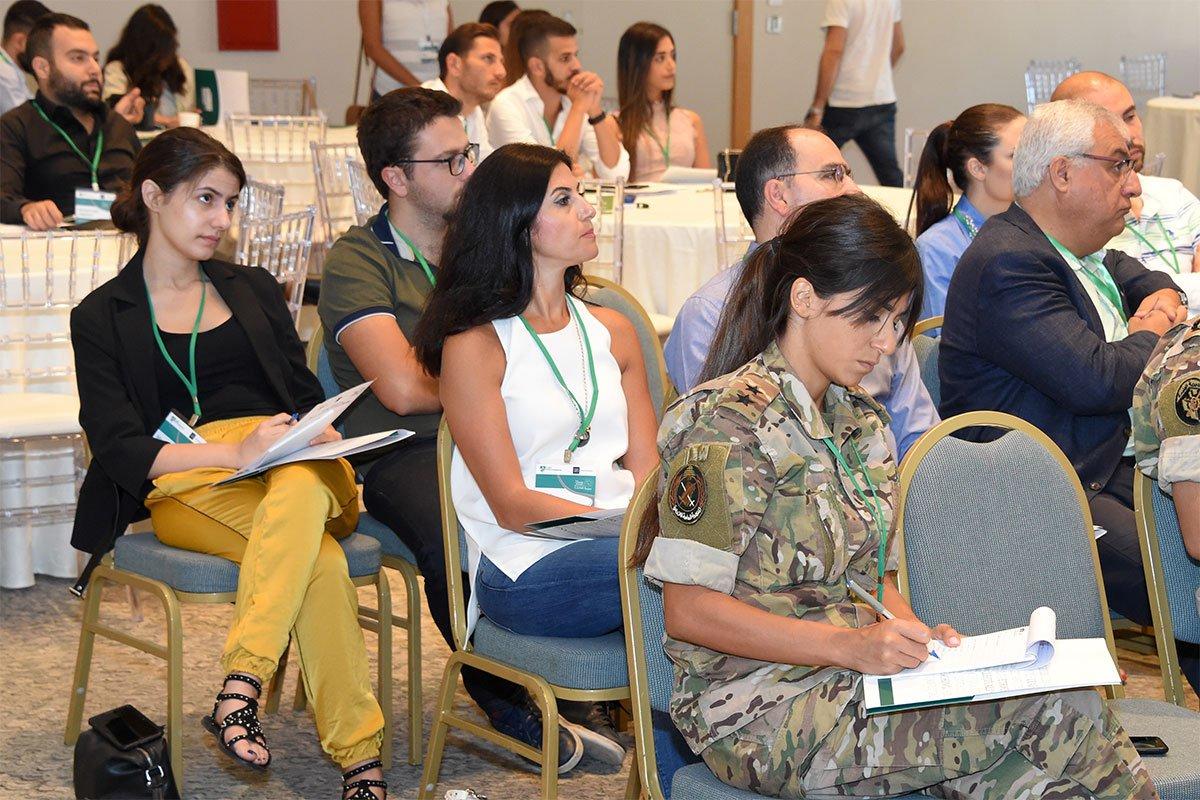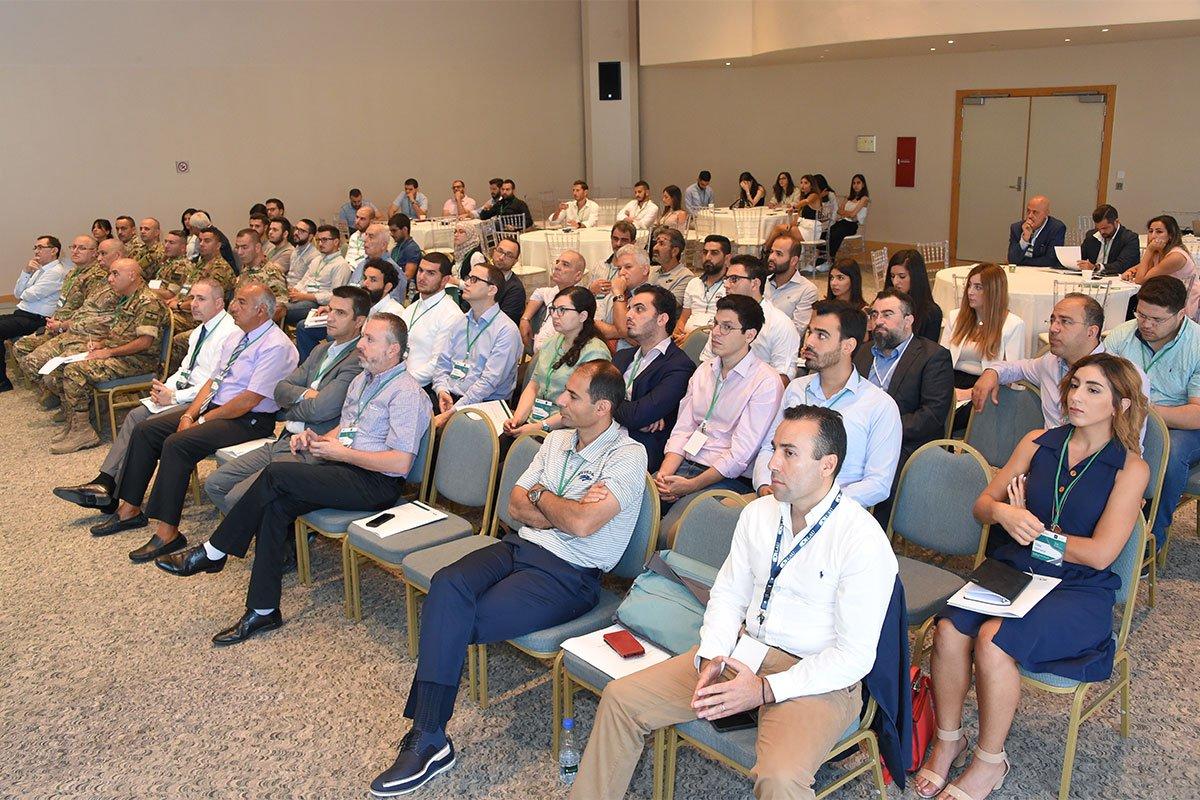Longer-Lasting Infrastructure Need Not Mean More Money
Second edition of SOE’s Pavement Engineering Seminar delivers answers on quality control, quality assurance and maintenance.
Last year, LAU’s School of Engineering (SOE) hosted a first-of-its-kind Pavement Engineering Seminar, focused on how asphalt materials are produced and perform under combined traffic and environmental stresses. This year, and again as part of the Mounir Khatib Endowed Engineering Lecture Series, the seminar focused on quality control and quality assurance in pavement construction, as well as pavement maintenance, rehabilitation and recycling.
In partnership with the University of Nevada – Reno (UNR) and Engineering & Research International (ERI), the Department of Civil Engineering at the SOE tailored the seminar for the Lebanese private and public sectors, drawing a host of attendees from over 20 private firms, engineers from the Lebanese Armed Forces, representatives from the Ministry of Public Works and Transport, as well as faculty, staff and students from 10 universities.
Representing SOE Interim Dean Raymond Ghajar, Chair of Civil Engineering Caesar Abi Shdid, in his opening speech, touched on how LAU strives to “extend and deepen channels of collaboration with the local industry for continuing education, research and knowledge sharing – especially in areas that are deeply needed in Lebanon, such as pavement design, construction, and quality control.”
Through separate commentaries, each of the three speakers at the seminar offered valuable insights into Lebanon’s pressing needs, including the knowledge that could bring solutions to the table and refine the role the new generation of civil engineers will play.
Associate Professor of Civil and Environmental Engineering at UNR Elie Hajj explained how effective pavement construction quality assurance and maintenance is crucial for the long term. “Lebanese roadways generally rank low in terms of deterioration, rendering it extremely costly to fix them, so the hope would be for new road projects to follow a system through which they would be designed, built and maintained with appropriate and cost-efficient technologies from the get-go.”
In that regard, LAU’s own Assistant Professor of Civil Engineering Gabriel Bazi wishes to build a center of excellence for pavement engineering at LAU, after having spent most of his professional career in the US. “We are currently setting up a new pavement engineering lab, which would hopefully cater to much-needed research on the topic that is specific to Lebanon.” Dr. Bazi highlighted that there is a high number of civil engineering students who consider specializing in the topic – either as a professional career or by pursuing graduate degrees.
In fact, ERI Manager of the Pavement and Infrastructure Management Division Khaled Galal quickly noted that ERI has so far recruited “some of the brightest LAU graduates” to help them with “technology transfer” – bringing the latest advances of the industry to the Middle East.
One such graduate, LAU alumna Elise Mansour (BE ’16) attended the seminar. She indicated that her final-year project at LAU had sparked her interest in pavement engineering. It was a proposal for the runway rehabilitation of the Kleiat Airport – considered a rare study of the former civil and military airbase.
“My capstone project was a marking point of my academic career as well as a stepping-stone for what was to come later,” said Mansour, who went on to complete a graduate degree in Pavement Engineering and Science at UNR. Taking her expertise back home, Mansour has worked with a team in asphalt construction at ERI and later joined Dar El-Handasah as a pavement engineer commissioned with revamping or designing airport runways in Saudi Arabia, Angola, Nigeria and Amman.
The Mounir Khatib Endowed Engineering Lecture Series was named after the late professor and pioneer who founded the Consolidated Engineering Company and served as head of the Lebanese Order of Engineers and Architects, among many other achievements in his praiseworthy career.
